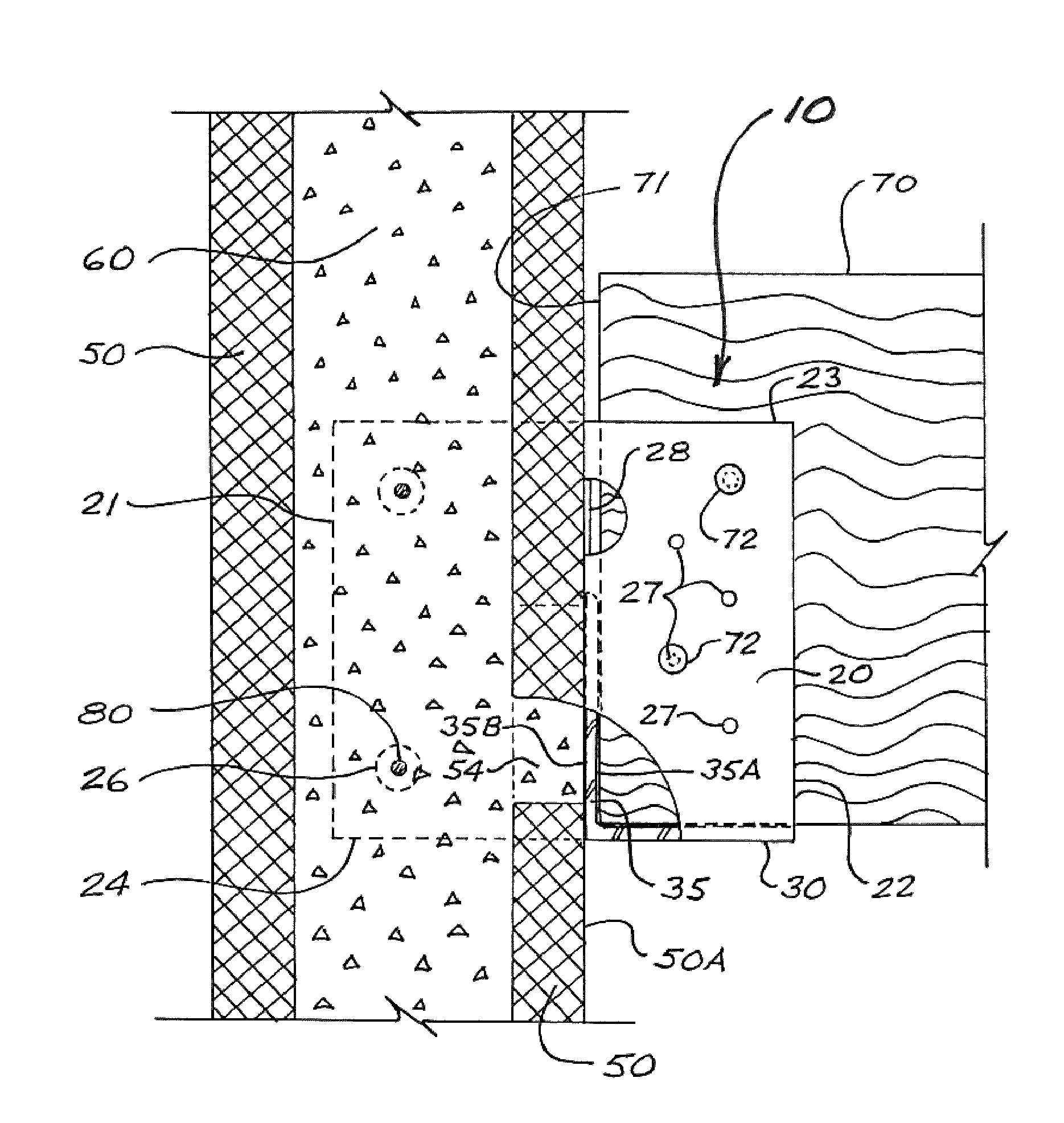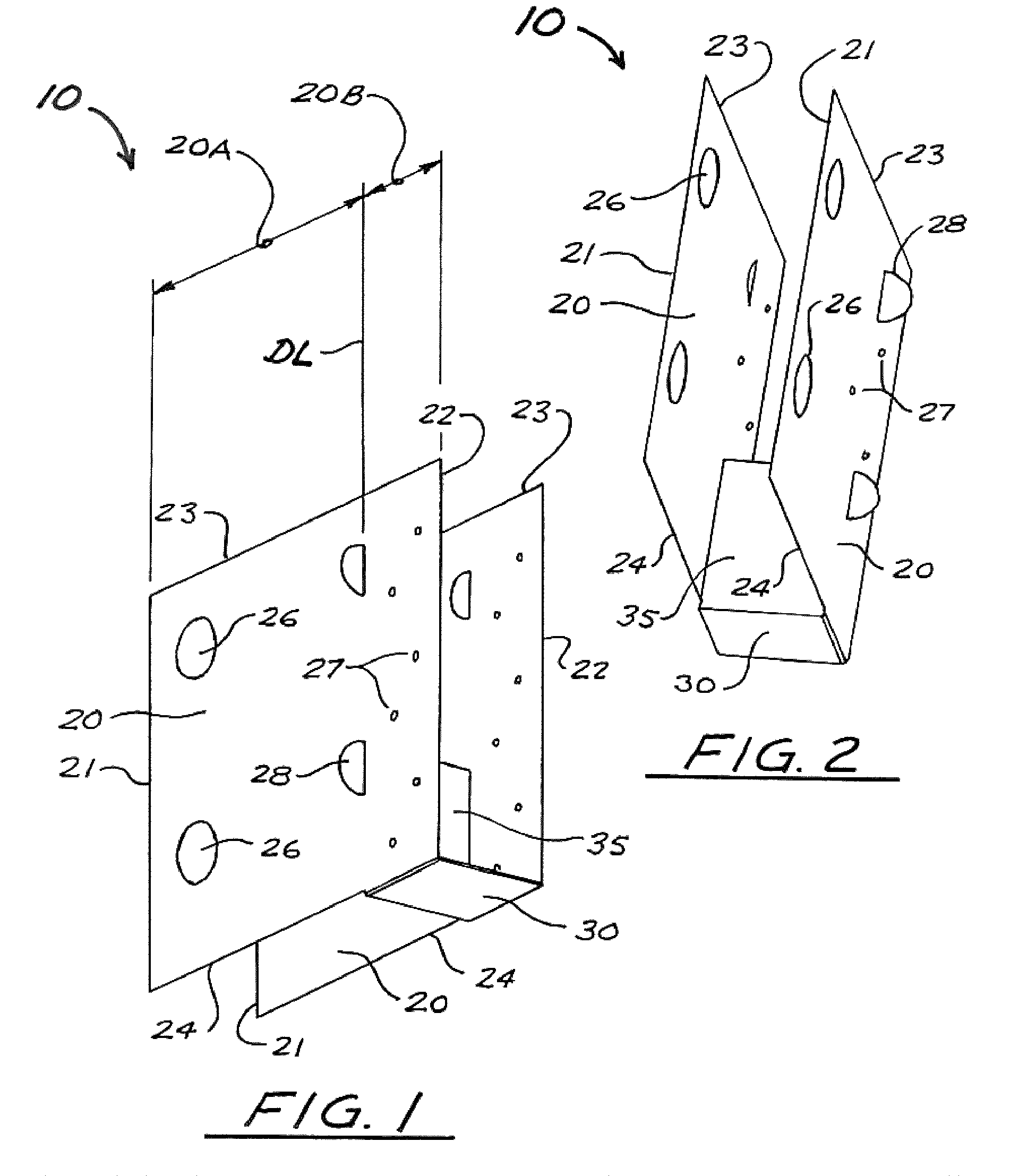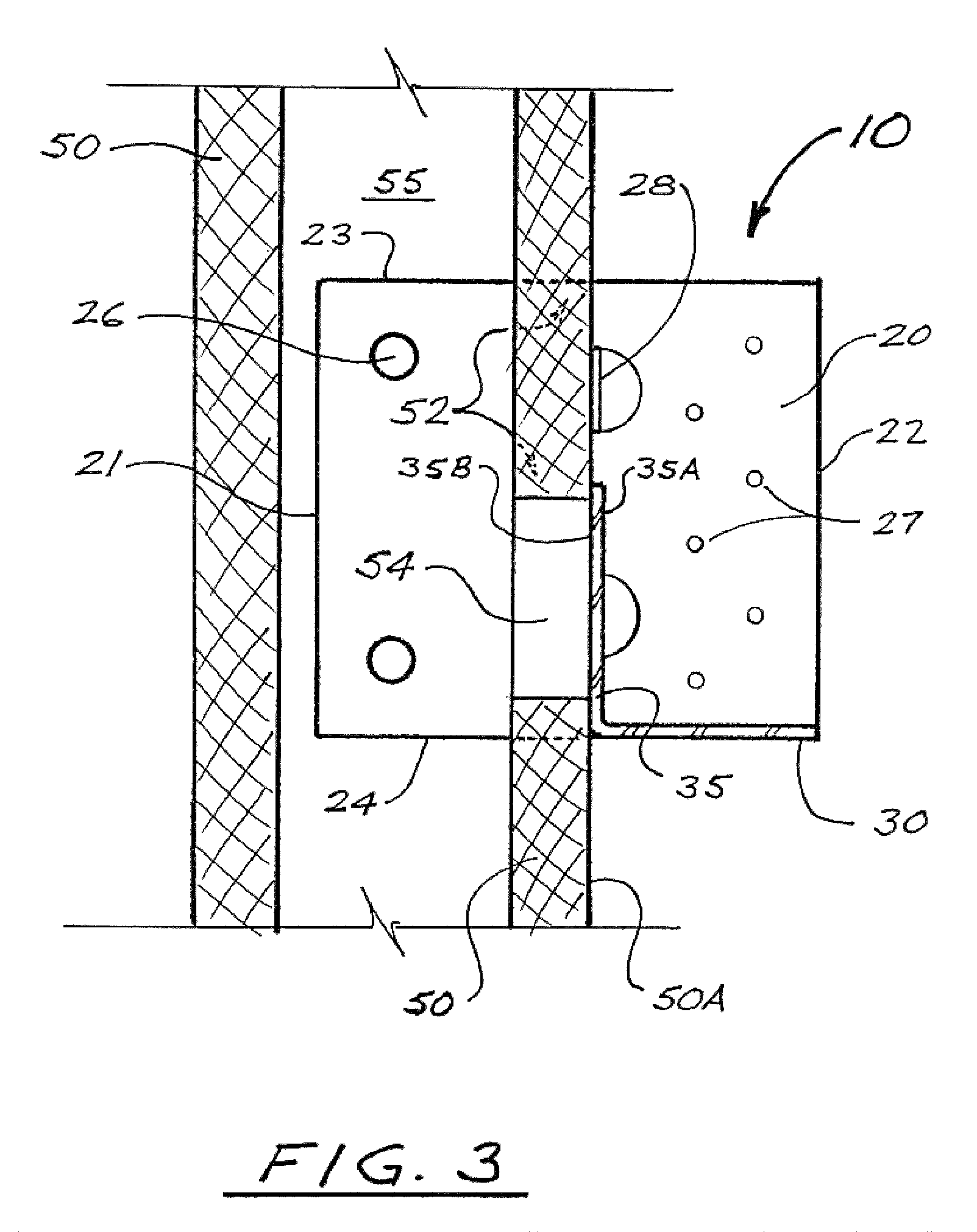Joist hanger for ICF wall systems
a technology of icf wall and joist hangers, applied in the direction of walls, structural elements, building components, etc., can solve the problems of serious damage to the bi-directional load transfer capability of the hanger assembly, add to the total time and cost of building construction, and difficult to embed beams and joists in concrete walls formed using icf systems, etc., to achieve the effect of strengthening the anchorag
- Summary
- Abstract
- Description
- Claims
- Application Information
AI Technical Summary
Benefits of technology
Problems solved by technology
Method used
Image
Examples
Embodiment Construction
FIGS. 1 and 2 are isometric views of an ICF joist hanger in accordance with a first embodiment of the present invention, in the form of a one-piece joist hanger 10 having:a pair of spaced side plates 20, each having an inner edge 21, an outer edge 22, an upper edge 23, and a lower edge 24, with each side plate 20 being subdivided into an inner section 20A and an outer section 20B (by a notional and typically vertical demarcation line DL); anda generally L-shaped support member comprising:a base leg 30 extending widthwise between the lower edges 24 of outer sections 20B of side plates 20; andas vertical leg 35 extending upward from base leg 30 along demarcation line DL, and having an outer face 35A and an inner face 35B.
In typical cases, vertical leg 35 will be perpendicular to base leg 30, and also perpendicular to both side plates 20 (which in turn will be parallel to each other in typical cases). In special cases, however, vertical leg 35 may be other than perpendicular to base le...
PUM
 Login to View More
Login to View More Abstract
Description
Claims
Application Information
 Login to View More
Login to View More - R&D
- Intellectual Property
- Life Sciences
- Materials
- Tech Scout
- Unparalleled Data Quality
- Higher Quality Content
- 60% Fewer Hallucinations
Browse by: Latest US Patents, China's latest patents, Technical Efficacy Thesaurus, Application Domain, Technology Topic, Popular Technical Reports.
© 2025 PatSnap. All rights reserved.Legal|Privacy policy|Modern Slavery Act Transparency Statement|Sitemap|About US| Contact US: help@patsnap.com



